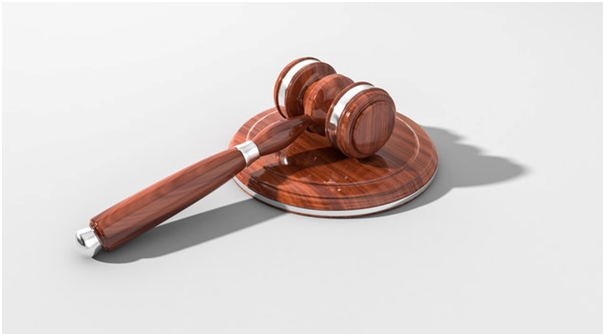July 17, 2019
LEGAL/LAW
Sponsored
Understanding Federal Appeals For Criminal Law
The United States of America has a robust legal system, designed to provide a fair and uncorrupted criminal system as well as a just and unbiased civil legal system. Unfortunately, even for the most innocent of people, sometimes that criminal system fails us. The process of being arrested and charged is traumatic enough, but when your faith in the system to prove your innocents fails it goes beyond distressing.
Thankfully, American law does not rest once you have been found guilty at trial, you have the right to appeal. However, you will generally find that the criminal defense lawyer who looked after your case up until this point is not the best person to take your case further. This is where you will need to start looking for a someone like Federal Criminal Appeals Law Firm – Stephen Preziosi.
Why Do I Need A Specialist Federal Appeals Lawyer?
Technically you don’t need a specialist lawyer to petition against a trial decision. However, when you are talking about federal court, most criminal lawyers do not have the in-depth knowledge of the legislation or the processes that will make your case run much smoother. By working with a legal firm whose practice is primarily focused within the federal system you are able to trust that you have someone on your side who knows how the Federal Circuit Court of Appeals works.
What Is The Federal Circuit Court of Appeals?
Within U.S. legislation you have the right to challenge a decision made in a district court by taking it to an appellate court. This generally means that your lawyer feels that there is a strong case that can prove the law was not upheld correctly during your trial. There are 12 Circuit Courts, and the one that you will be lodging your appeal with will depend on what state your trial was held in.
The C.A.F.C. is where you will appeal any decision given in a District Court. The application will not be heard by a jury, instead your lawyer will be trying to convince three judges, who are very well versed in case law, that the spirit or the letter of the law was not well represented during your trial. https://www.uscourts.gov/about-federal-courts/court-role-and-structure
Are All Federal Appeals Lawyers Able To Represent A Criminal Case?
As above, technically, yes. However, because many of the cases that are brought to the attention of the Federal Circuit are more in the nature of patent law or bankruptcy, you will find that the lawyers who specialize in these areas are not as well versed in the criminal aspects of the law. This may simply mean that you end up with a more expensive legal bill as they will need to spend more time researching the unknown area of case law.
Unfortunately, it is more likely to mean that your appeal will fail, not because the lawyer wasn’t good, but simply because they did not have enough specialized knowledge and experience. Criminal appeals court is a very unique system unlike either the district courts or even appeals related to business law. Does your lawyer know this aspect of the law well enough to know which legal arguments will work within the Federal Circuit, and which ones are more likely to see the case thrown out?
I Hired An Appeal Lawyer But They Want To Go Back To Trial!
This can be a very confusing recommendation when you are geared up to start the process. However, the way that the system works is that you can only formally request a retrial, or the overturning of a decision, based on actual case law, and you can only appeal something that was addressed in the original trial. Your appellate lawyer might see immediately that you were the victim of an illegal search and seizure, however, if the original lawyer who represented you in your criminal trial at district court never raised this, then your appeals lawyer cannot counter a decision based on this. So, sometimes they will recommend heading back to a district judge to have a motion raised. Of course, it may mean that the case gets thrown out at the district level, but this would be a rare occurrence.




